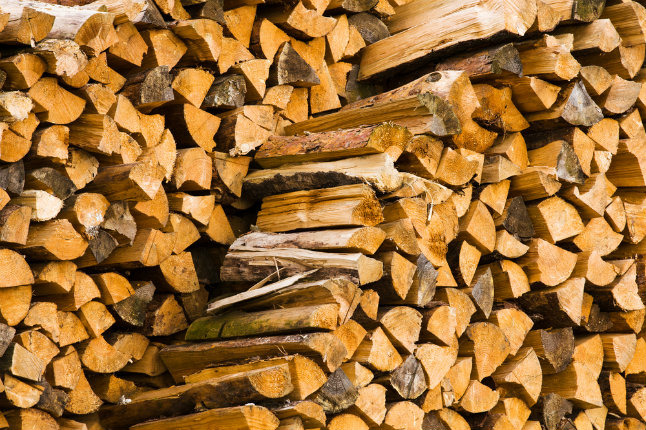Plenty Of Firewood In The Pile
Recently, as I was starting home on foot, a neighbor who lives up the road from me stopped at the row of mailboxes along the highway. He knows that if I want a ride, I'll ask. So instead, he says, "How's your woodpile?"
"Getting low. Yours?"
He has a big truck, a big chainsaw, and he's a big guy. He purchases a permit every year and cuts as much wood as he wants wherever it's legal. Often, it's oak and juniper, which burn hotter, cleaner and longer than the pine and piñon I buy or scrounge. I'd have woodpile envy if I had to walk past his place.
"I'm fine," he says. "I have plenty."
It's late March and northern New Mexico has finally had a snowy winter after years of drought. Everyone's sick of mud and ice and slippery roads; everyone who heats with wood, and that's many of us, is tiring of the supposed romance of tending the home fires. But there's a snowpack in the forests. Fires might be milder this summer. Rivers will run clear and cold for the trout; animals will have plenty of food for a change. Bears won't need to venture to lower elevations after garbage, pet food or even the pets themselves.
Last autumn, this neighbor offered to split a pile of pine rounds in my yard. I'd brought them from a friend's property higher in the mountains where fire threatens houses if owners don't thin their trees. There are no hydrants and only volunteer firefighters. She wanted to minimize risks. Take it all, she explained. Just get it away from here.
Free wood is terrific, even if you repeatedly put 50 miles on the car to fetch it, then spend months splitting it. It's like money in the bank, except you can see it. Those rounds wait in the sun, drying slowly, bark cracking so that once you set a piece on the chopping block and swing the ax into that bull's eye of growth rings, the thick brown skin pops cleanly away revealing golden, aromatic wood.
If all you do is dial a thermostat to bring the furnace to life each day, you might say, as another neighbor did recently, that heating with wood seemed "awful inconvenient." It is. And it's not the cleanest solution for staying warm, either. She wondered why I didn't use the adobe's wall heater. Propane has to be processed and trucked who knows how far, I thought. Besides, mice moved into that heater years ago. Evicting them isn't high on my list.
Last fall, I'd thanked my neighbor who offered to split the wood, but said I enjoy doing it.
The day at the mailbox, as he pocketed his bills, I told him, "I'm down to the ornery stuff."
These are crookedly cut rounds that won't stand up or meanies full of knots. The wedge sticks. For days, you whack it with the maul until the gnarly grain cleaves and the wedge hits the ground with a satisfying clang.
I tell him one morning I burned an utterly unsplittable pine burl. The stove snapped, the stovepipe twanged and the wood snarled in the firebox like a wild creature. I smelled a smell that scared me. Smoldering roof? What was I supposed to do if I suddenly heard a roar like an oncoming train as everything burst into flames? Open the stove door, I'd been taught, toss in a cup of water, slam the door and pray the exploding steam doused the fire.
Instead, I did dishes. The fire subsided, the cat was finally as warm as he'd longed to be and creosote flaps blasted from the chimney, I discovered later, cleaning it.
"I have piñon in the yard," I tell my neighbor as he locks his mailbox, "if I need it."
Drought stressed these trees, which succumbed to bark beetles. I left the skeletons standing. They provided banquets for woodpeckers, perches for songbirds and holes for cavity nesters. When crown rot and wind finally felled the piñons, I sawed pieces by hand, leaving sticks and trunks as shelter for seeds, lizards and the future.
Several times, another man on my road claimed he needed to run his chainsaw dry for winter and came to buck whatever trees I chose. I realize he must've filled up because he cut and I hauled lots of dead wood to see me through. Once, I tried to pay him. No, he said, helping's what neighbors do. So I hid a tub of posole in his truck, where he'd find it in time for supper.
I love walking to the mailbox. Sometimes, so many people drive by, pausing to chat, that the half-mile each way takes a long time. You catch up. You hear their news; they hear yours. You find out what your neighbors need or want, what would make them happy. You find yourself being cared for without having to ask.
"Call me if you need wood," my neighbor repeated as he climbed into his truck. "Really. I have plenty."
–
This essay first appeared in High Country News.
